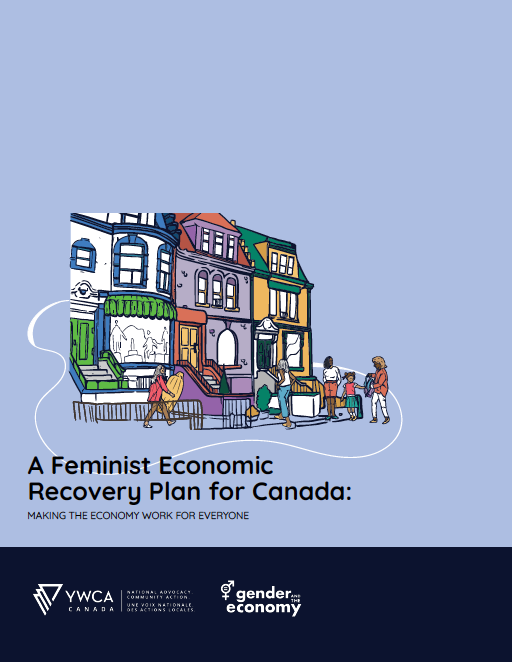As the COVID-19 pandemic continues to unfold, the devastating toll on lives and economic well-being is already starkly apparent. In Canada, the COVID-19 crisis has had disproportionate economic, health and social impacts on cis and trans women, Two-Spirit and gender-diverse people, particularly those who are low-income, people with disabilities, are members of the LGBTQ+ communities, belong to Indigenous, Black, or racialized communities or are newcomers, refugees, immigrants and migrants.
Nationally, as of July 2020, around 56% of the cases and 54% of the deaths from COVID-19 have been experienced by women. This is in part because women are on the frontlines of the pandemic. In Canada, 81% of the health care and social assistance workforce is made up of women. Fifty-six percent of women workers are concentrated in occupations known as the 5Cs: caring, cashiering, catering, cleaning and clerical functions, many of which are deemed essential occupations. In contrast, only 17% of men workers are employed in these jobs. Such jobs for the large part cannot be done remotely; while higher-income workers in sectors such as finance or professional services are able to work from home more safely.
Sultana, A. & Ravanera, C. (2020, July 28). A Feminist Economic Recovery Plan for Canada: Making the Economy Work for Everyone. The Institute for Gender and the Economy (GATE) and YWCA Canada.






